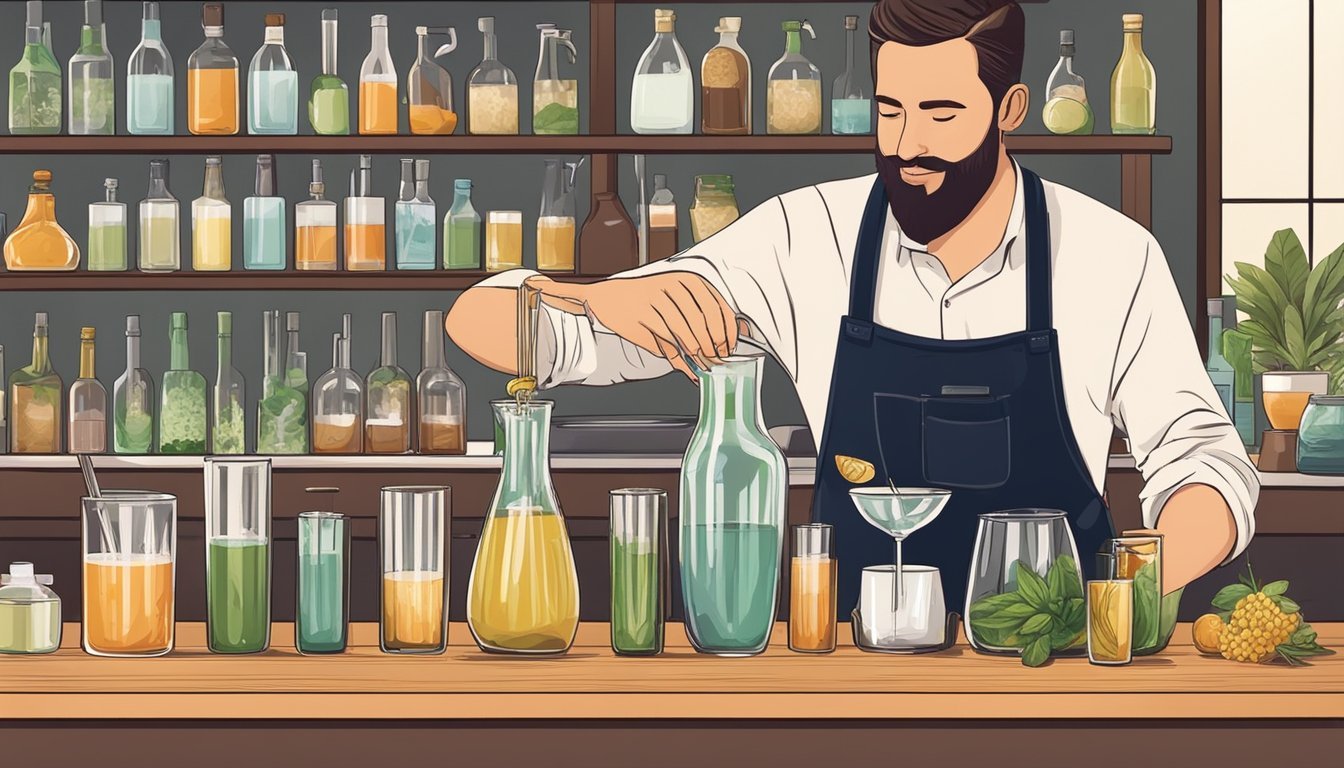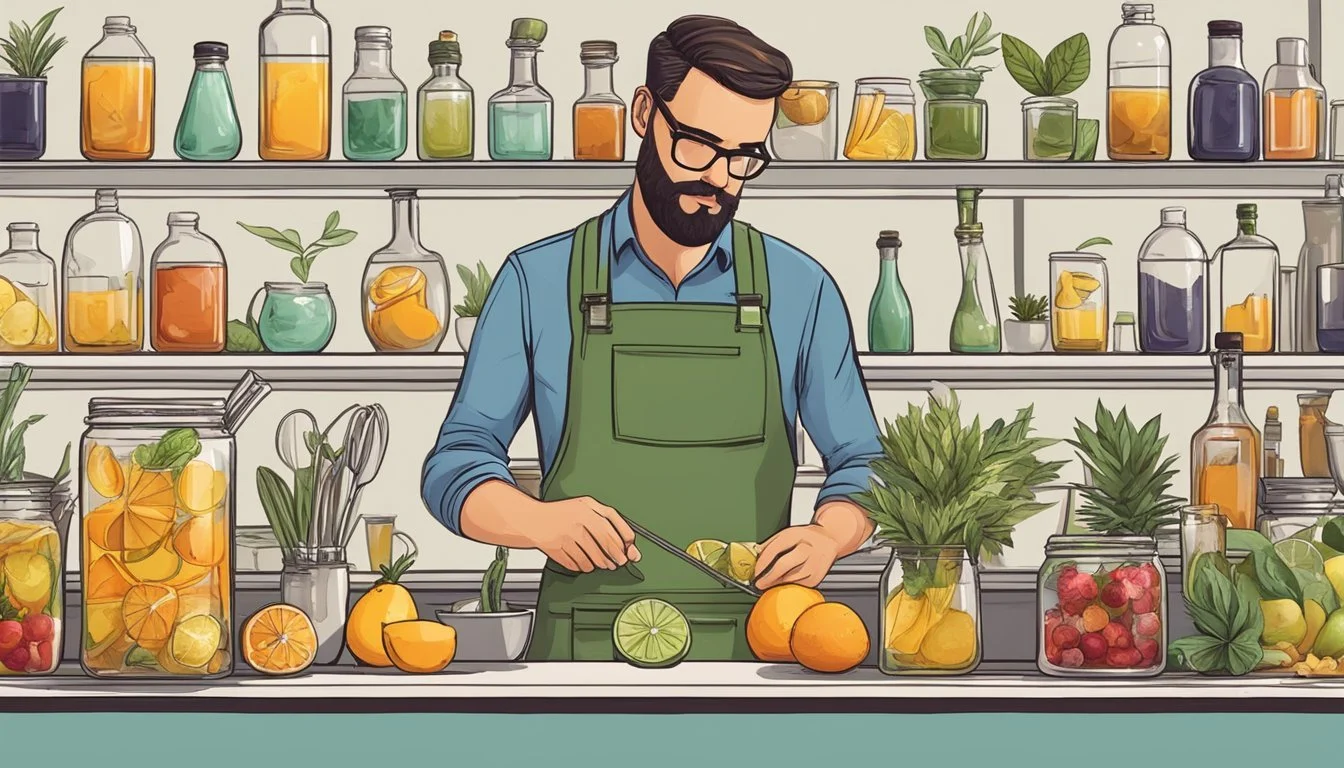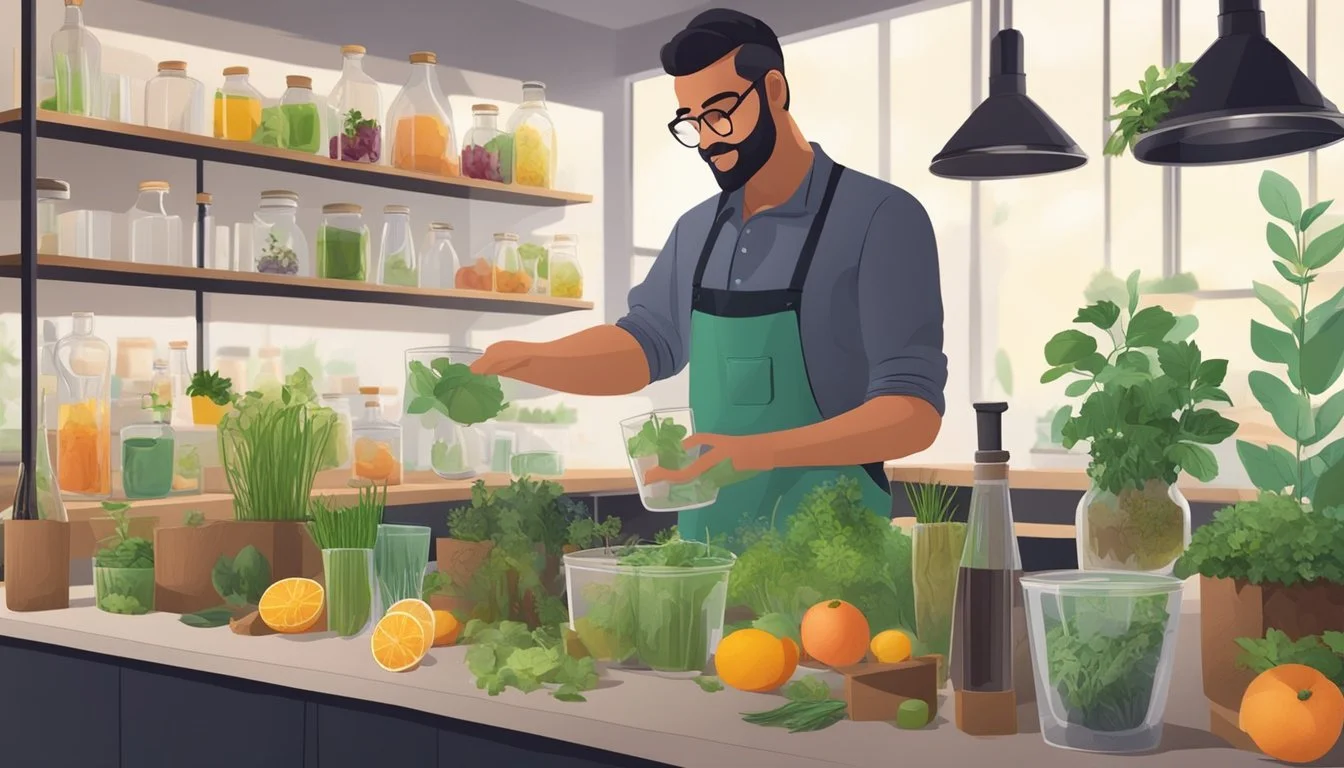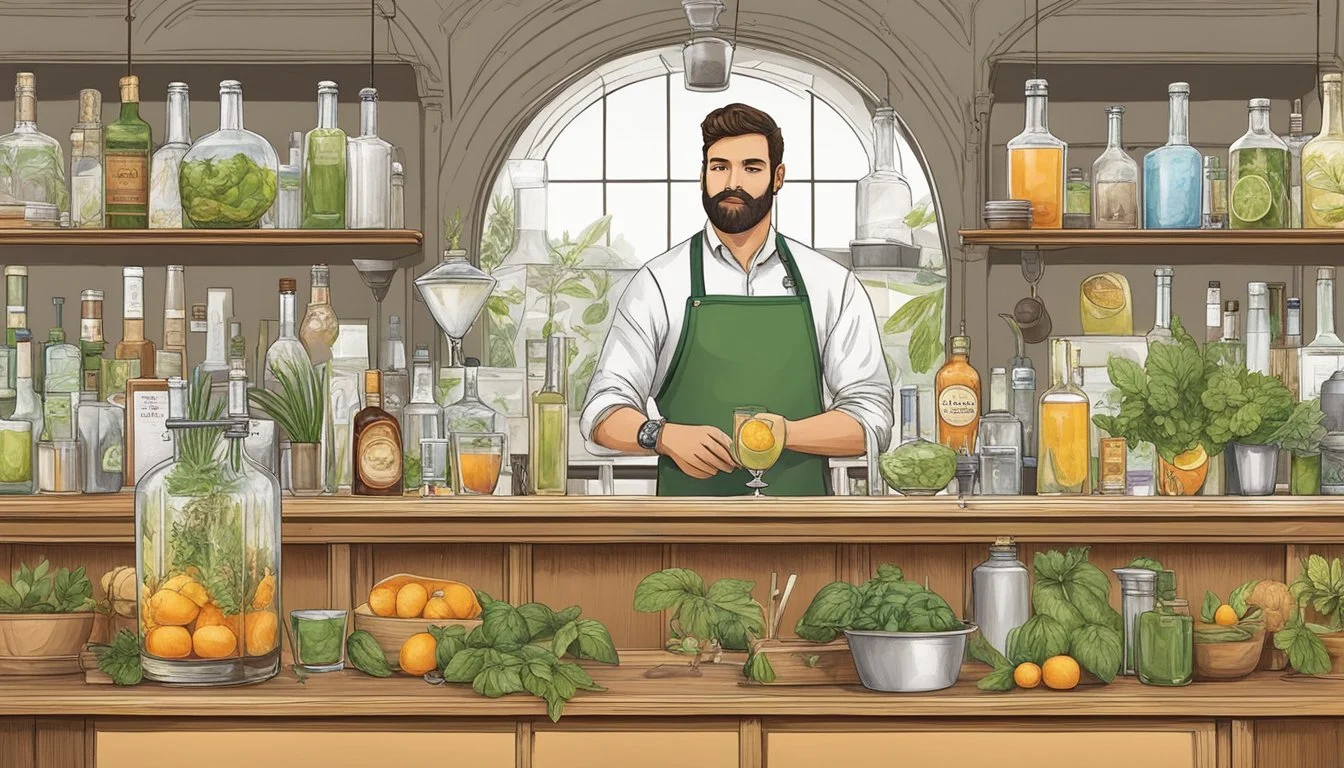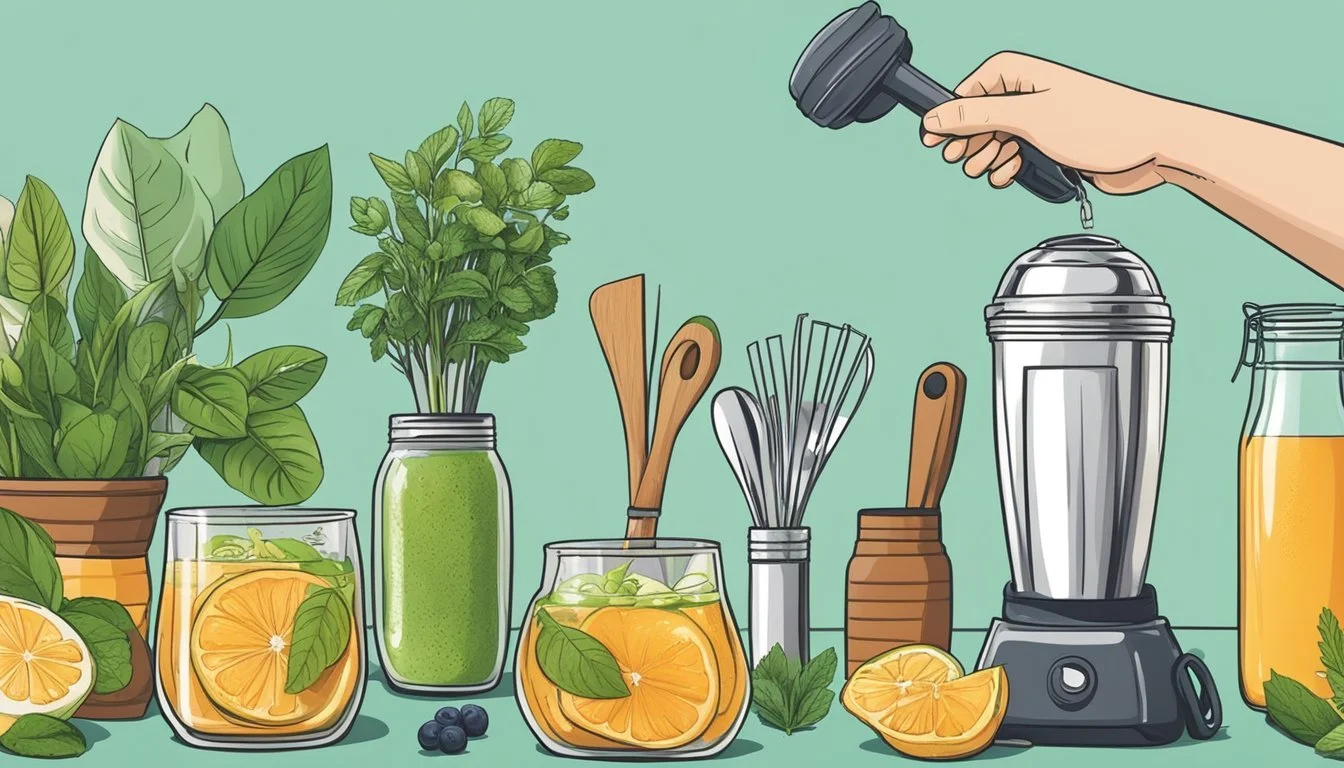Texas Bartenders' Tips for Eco-Friendly Mixology
Sustainability has been making waves in various industries, and the cocktail scene in Texas is no exception. Bartenders across the Lone Star State are embracing the movement toward eco-friendliness, transforming the art of mixology into a sustainable practice. These professionals are leveraging their creativity and expertise to craft cocktails that not only taste exceptional but also prioritize environmental consciousness.
In the journey towards sustainable mixology, Texas bartenders are implementing a range of innovative techniques. From utilizing local, seasonal ingredients to reducing waste in their establishments, these mixologists are setting a new standard for eco-friendly drinks. Their commitment to sustainability goes beyond the glass, influencing the bar industry's approach to environmental responsibility.
Through mindful sourcing and efficient use of resources, these bartenders are cultivating an eco-centric cocktail culture. Their practices illustrate how the ethos of sustainability can be seamlessly integrated into the world of cocktails, providing patrons with exceptional drinks that also benefit the planet. These efforts spotlight how sustainable cocktails are not just a trend but a reflection of a broader commitment to the well-being of the environment.
Foundations of Sustainable Cocktailing
In developing cocktails with the environment in mind, it’s essential to understand the basics of sustainability in mixology and recognize why eco-friendly practices are influential in bartending.
Defining Sustainability in Mixology
Sustainability in mixology refers to the conscious effort of bartenders to minimize environmental impact through their practices and choices. This encompasses everything from the selection of ingredients to the disposal of waste. Sustainable practices may include sourcing local and organic produce, reducing energy consumption, and minimizing water waste. A bartender’s toolkit for sustainability can manifest in actions such as:
Choosing organic spirits that support sustainable farming.
Repurposing ingredients, like using fruit peels to create infused syrups.
Reducing packaging waste by bulk-buying ingredients.
Using biodegradable or reusable straws and napkins.
The Importance of Eco-Friendly Practices
Eco-friendly practices in bartending not only contribute to the conservation of resources but also set a standard for the industry's role in mitigating environmental degradation. The use of eco-friendly practices helps bars to:
Lower their carbon footprint by decreasing the energy used in production.
Minimize waste with more thoughtful resource management.
Cultivate a positive image reflecting a commitment to environmental responsibility.
Foster a healthier ecosystem by reducing pollution and conserving biodiversity.
It takes concerted efforts and creativity to shift towards more sustainable methods, but the outcomes can lead to significant environmental benefits, helping to ensure that the industry thrives in harmony with the planet.
Ingredients and Sourcing
Crafting sustainable cocktails is as much about the choice and source of ingredients as it is about the techniques used. Bartenders in Texas emphasize the selection of sustainable spirits, prioritization of local and seasonal produce, and choosing organic and biodynamic options.
Selecting Sustainable Spirits
The foundation of any cocktail lies in its spirits. Sustainable spirits are often defined by how they are produced and the company’s commitment to ethical practices. Bartenders should seek out fair trade and ethically sourced spirits that support local communities and minimize environmental impact. A table to consider for possible spirit selections is:
Spirit Type Sustainable Brand Example Notes
Gin Brand A (Certified Organic) Small batch, minimal chemicals
Rum Brand B (Fair Trade Certified) Supports local farmers
Whiskey Brand C (Green Distillery Practices) Reduces carbon footprint
Using Local and Seasonal Produce
Incorporating local produce not only supports regional farmers but also reduces the carbon footprint linked to transportation. Texas bartenders recommend using fruits, herbs, and other cocktail components that are in season, which can provide a fresher taste and a smaller environmental impact. For example:
Spring: strawberries, basil
Summer: peaches, mint
Fall: apples, thyme
Winter: pomegranates, rosemary
The employment of seasonal produce is equally a commitment to flavor as it is to sustainability.
Choosing Organic and Biodynamic Options
Organic and biodynamic ingredients are central to eco-friendly mixology. They avoid the use of harmful pesticides and chemicals, promoting a healthier ecosystem. Organic produce is grown without synthetic additives, and biodynamic wines are produced using methods that view the vineyard as an ecological whole. Bartenders should look for certifications on labels as indicators of these practices:
USDA Organic: Confirms no synthetic fertilizers or pesticides were used.
Demeter Certified Biodynamic: Ensures agricultural self-sufficiency and biodiversity.
By focusing on sourcing and choosing ingredients with care, bartenders can significantly enhance the sustainability of their cocktails.
Waste Reduction Techniques
In crafting sustainable cocktails, Texas bartenders focus on specific waste reduction strategies, aiming to minimize environmental impact through thoughtful consumption and reuse of materials.
Minimizing the Use of Single-Use Plastics
Bars are eliminating single-use plastics, such as plastic straws, and replacing them with alternatives that are either reusable or biodegradable. Stainless steel, glass, bamboo, and compostable straws have become popular options for bartenders who are dedicated to minimizing waste. This shift not only decreases plastic pollution but also encourages patrons to reflect on their own usage of disposable items.
Alternatives to Single-Use Plastics:
Biodegradable straws: Bamboo, paper
Reusable straws: Stainless steel, glass
Drink stirrers: Metal, wood
Innovative Reuse of Ingredients and Materials
Bartenders are turning towards upcycling as a creative solution to reduce waste. Citrus peels, often discarded after juicing, can be dehydrated and used as garnishes or even zested to infuse spirits. Texas bartenders emphasize the art of using every part of an ingredient, thus reducing waste and enhancing the flavor of their eco-friendly cocktails.
Creative Reuse Ideas:
Citrus peels: Garnishes, spirit infusions
Fruit leftovers: Syrups, shrubs
Leftover herbs: Infused oils, cocktail bitters
Composting and Recycling Best Practices
Recycling and composting are critical elements of waste management in sustainable bar operations. Bartenders strive to compost organic waste like fruit scraps and herb stems, transforming them into nutrient-rich soil instead of adding to landfill mass. In parallel, careful sorting of recyclables such as glass and cardboard ensures that materials are properly recirculated, further reducing the bar's carbon footprint.
Recycling and Composting Actions:
Organic Waste: Composting fruit scraps, herb remnants
Recyclable Materials: Sorting glass bottles, cardboard packaging
Education: Staff training on proper waste segregation
Preparation and Craft
The Texas bartending scene is pioneering in blending sustainable practices with the art of cocktail preparation. Focusing on waste reduction and eco-friendly ingredients, bartenders are crafting cocktails that are as kind to the palate as they are to the planet.
Crafting Cocktails with Minimal Waste
When Texas bartenders approach cocktail creation, reducing waste is paramount. They advocate for the use of the entire ingredient, exemplified by incorporating citrus peels into infusions or as edible garnishes, extending the shelf life of perishables. A well-crafted Sustainable Margarita, for instance, might feature a homemade citrus peel syrup, not just for flavor but also in lieu of discarding peels. Here's a quick guide on how to minimize waste:
Ice: Reuse melted ice for watering plants.
Citrus Peels: Transform into infusions or garnishes.
Infusions/Syrups: Create in batches, store for longevity.
Bitters/Vinegars: Opt for homemade to reduce packaging.
Storing syrups and infusions in large batches not only extends their shelf life but also reduces the environmental toll caused by excessive packaging.
Incorporating Eco-Friendly Cocktail Recipes
Texas mixologists infuse sustainability into their recipes, ensuring each component counts. For a Green Gimlet, bartenders might utilize locally sourced, organic bitters or infusions, promoting the use of in-season and local ingredients. The use of biodynamic wine spritz satisfies the eco-conscious clientele and introduces a refreshing twist to the traditional spritz. Simple adjustments to traditional recipes can result in a significant decrease in waste. Consider the following recipe adaptations:
Vinegar/Reductions: Replace commercial sour mix with homemade alternatives like vinegar reductions.
Shelf Life: Choose ingredients with a longer shelf life to minimize spoilage.
Zero-Waste Cocktails: Select recipes designed to utilize leftovers, such as infusions made from overripe fruit.
By adopting these practices, Texas bartenders not only craft refreshing and unique drinks but also contribute to a more sustainable future in the world of mixology.
Tools and Techniques for Sustainable Bartending
To ensure that eco-consciousness is as much a part of the drink in hand as the taste, bartenders are increasingly turning to sustainable tools and energy-efficient techniques.
Choosing Sustainable Barware and Equipment
Bartenders select barware that combines durability with sustainability. Stainless steel tools are preferred for their longevity and recyclability. They may choose:
Shakers: Stainless steel shakers outlast plastic counterparts and are less likely to break or need replacement.
Strainers: High-quality stainless steel strainers avoid the waste of frequent replacements.
Bar Spoons: Solid stainless steel bar spoons stir drinks efficiently and endure extensive use without degradation.
They consider sourcing vermouths and other spirits from local producers to minimize the carbon footprint associated with transport.
Energy Efficient Practices Behind the Bar
To optimize sustainability, bartenders adopt energy-efficient practices behind the bar like:
Energy-Efficient Appliances: Selecting coolers and glass washers that feature high energy efficiency ratings.
Reduced Water Usage: Implementing water-saving techniques when rinsing tools and glassware.
Green Electricity: Choosing to power their establishments with renewable energy sources when available.
Through their mixology skills, bartenders craft cocktails with attention to both impeccable taste and the well-being of the planet. They understand that sustainable bartending is a crucial step towards a more environmentally conscious hospitality industry.
Promoting Sustainability in the Bartending Community
The Texas bartending community is actively integrating sustainability into their cocktail craft, using educational tools and social media to advocate for environmental sustainability and biodiversity.
Educational Initiatives and Training
Education is fundamental in shifting the bartending industry towards sustainable practices. Texas bartenders are investing in training programs that emphasize the use of eco-friendly ingredients and techniques. These initiatives often start in bartending schools and extend into professional development workshops where bartenders learn how to:
Select ingredients that promote biodiversity
Implement energy-efficient methods
Minimize waste through eco-friendly techniques
By staying educated on sustainable practices, bartenders not only better their craft but also contribute positively to the environment.
Using Social Media to Champion Sustainable Bartending
Through social media, Texas bartenders are amplifying their sustainable bartending message. Platforms like Instagram, Facebook, and Twitter become stages where bartenders showcase:
Cocktails made with eco-friendly ingredients
Behind-the-scenes looks at sustainable bartending in action
Educational content focused on the importance of environmental sustainability in the industry
By leveraging the power of social media, bartenders create a ripple effect, inspiring not just their peers but also patrons to value and support sustainable practices.
Building a Sustainable Bartending Career
Crafting sustainable cocktails is not just a trend, but a comprehensive approach integral to establishing a long-term career in bartending. This practice requires commitment to continuous learning and application of eco-friendly techniques.
Mindfulness and Responsibility in the Industry
A bartender who practices mindfulness in their craft recognizes the importance of every element used, from ingredients to processes. They are committed to reducing food waste and understand the environmental impact of their actions within the industry. This responsibility extends beyond professional bartenders to those who mix drinks at home, as home bartenders also play a role in the sustainability movement.
By adopting techniques that rectify wasteful practices, such as using leftovers from preparing fruit garnishes to make infusions or syrups, bartenders can significantly minimize waste.
Sustainable bartenders often collaborate with local distilleries that are committed to eco-friendly production processes, further aligning their practice with environmental responsibility.
Mindfulness extends to the use of water and energy, wherein a bartender ensures efficient use of resources, even in high-paced work environments.
Key Practices for Sustainability Description
Local and Seasonal Ingredient Sourcing Bartenders opt for produce that is in season and sourced from local producers to reduce carbon footprint.
Eco-friendly Bar Equipment Utilizing tools made from sustainable materials and maintaining them for prolonged use.
Waste Management Implementing composting and recycling protocols for organic and inorganic waste.
Education and Training Continual learning about sustainable practices and training peers in the industry.
Through mindfulness and responsibility, bartenders not only enhance their own careers but also contribute positively to the broader conversation around sustainability.
Future Perspectives
The ongoing shift towards sustainable practices in the bartending industry promises to influence future trends and the global landscape of eco-friendly mixology.
Innovations in Sustainable Cocktail Trends
The industry is witnessing a surge in the use of organic spirits and eco-friendly spirits that support both the environment and advanced mixology. Sustainable gin, for example, has gained traction as producers harness renewable energy sources for distillation and prioritize botanicals grown through sustainable agriculture. Innovations extend to methods of minimizing cocktail waste, such as using spent ingredients creatively or adopting digital platforms that streamline inventory to reduce over-purchasing.
Renewable Energy: Distilleries are increasingly investing in solar and wind power.
Cocktail Waste Reduction: Techniques include dehydrating fruit for garnishes or repurposing citrus peels into syrups.
The Global Impact of Sustainable Bartending Practice
Sustainable bartending has a tangible impact on combating climate change, with bars around the globe integrating locally sourced ingredients to lower carbon footprints. The push for seasonal ingredients highlights nature's cyclic bounty, fostering a deeper connection between consumers and their environment.
Locally Sourced: Bars are partnering with nearby farms for fresh produce.
Climate Change Combat: Using local and organic products reduces transportation emissions.
The focus on sustainability within the bartending community is shaping not just future trends, but also establishing new norms for environmental stewardship in the hospitality sector.
Conclusion
In the realm of mixology, sustainability has become an indispensable ingredient. Texas bartenders have championed the fusion of environmental consciousness with the art of crafting cocktails, manifesting not only in the drink’s flavor but also in its footprint on the planet.
The move toward sustainable cocktails incorporates:
Use of local ingredients: To reduce transportation emissions and support local economies.
Waste reduction strategies: Such as composting citrus remains and repurposing fruit peels for garnishes.
Eco-friendly practices: Involving biodegradable straws and reusable glassware to minimize single-use plastic waste.
Through sustainable practices, bartenders contribute to conservation efforts and forge an ethos of responsibility that resonates with patrons. They prove that small, deliberate actions within the beverage industry can yield significant environmental benefits. Embracing local produce, minimizing waste, and selecting eco-friendly alternatives are not fleeting trends but enduring commitments to the earth's well-being.
The cocktail glass, often seen as a vessel of indulgence, now also becomes a symbol of positive change. Texas bartenders show that one can enjoy the complexities of a well-crafted drink while also being mindful of the environment. As they continue to integrate sustainable methods into their craft, they lead by example, encouraging both peers and patrons to think and drink sustainably.

